To be truly self-sufficient, you will need to introduce animals to your land.
Just as there are things to look for or to avoid when buying a property, there are Dos and Don’ts to buying livestock. There’s much more to buying and keeping livestock than simply making the purchase. Many things must be considered before bringing a new animal home: the amount of space an animal requires, transportation, veterinary care, budget.
Here are a few Do’s and Don’ts to buying livestock to help get you off on the right foot.
Do Know The Animal’s History
Similar to when you are bringing home or adopting a family pet, (or buying a used car) it’s essential to know an animal’s history before bringing them to your land.
There is a long list of questions to ask, such as: when was the animal born? What vaccinations have they received and when? Have they been given any medications in the past (particularly important question if the livestock is meant to provide meat)? Does the animal have a history of illness?
Knowing the animal’s history is going to guide you on how to care for this animal and the others who will be living alongside them.
Related: 7 Domestic Animals That Are Too Easy To Raise
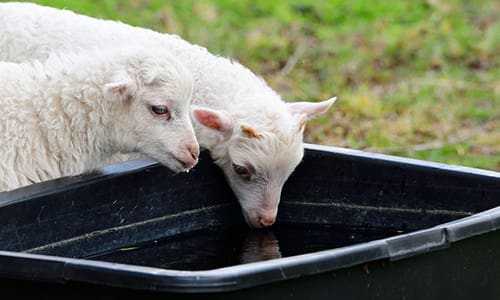
Don’t Assume That You Have Room For Everyone
Animals need space. Some need much more space than others.
Before buying livestock be sure that you are understanding just how much space each individual animal will need for a healthy and just life on your land. In addition to the amount of space each individual animal requires, you must also factor in the space needed to provide shelters for these animals.
For reference, a cow requires one acre of land for grazing and ideally will require an additional acre to graze to allow their usual space some time to recover. The average small-scale farm or homesteader keeps three cows, so you will be in need of six acres in total for said three cows (or only three acres if you have a friend or neighbor who has land that your cows can graze).
Goats and sheep require two hundred square feet each, and just like cows, they should have an additional field to graze to allow time for their primary field to recover.
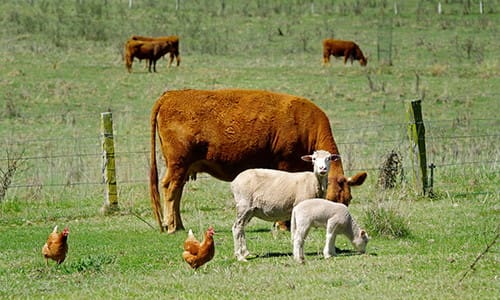
Do Keep Livestock That Is Of Use To You
It’s hard to fight the urge to start a small farm as soon as you acquire a new property, but animals should be acquired slowly. Whatmore, you should only acquire livestock that will be of use to you.
Animals of any kind are a great responsibility. They must be well cared for and looked after closely, and can become particularly taxing on new homesteaders. Introduce animals that you are in need of. Once routines are established and everything feels like smooth sailing, it may be time to consider bringing in the animals that weren’t urgent to have on hand at the start.
Start with animals that will bring the most benefit to you. Are you raising some cattle for meat? Are you going to be making goat cheese as your main protein source?
Ask yourself what animal is essential, and start with them before adding others.
Related: Chickens
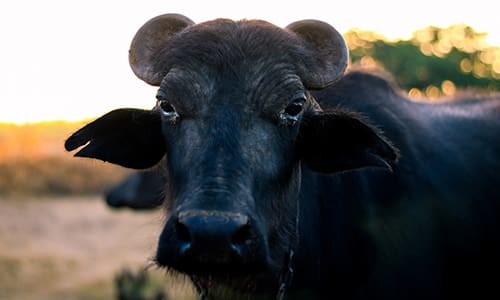
Don’t Mix Your Livestock Straight Away
All new animals need time to get acquainted with their new environment. Being brought into a new home causes much stress and anxiety on your livestock and this can cause them to act out towards other animals, or even yourself. Not to mention, not all animals can live harmoniously together in a field, so even more precautions should be taken when mixing different species of animals together.
For this reason, it is important that all newly acquired animals are quarantined for a minimum of twenty-one days. During this Twenty-one day period, newcomers should be kept away from other animals. If this is impossible for you to do, it’s important to try to keep as much physical distance between the animals as possible, especially nose-to-nose contact (feeding and watering). Observe your new livestock for any stress or illness during this period.
Farm animals that can be successfully raised together are ruminants (cattle, sheep, goats) and mixed poultry, and pigs get along lovingly with poultry. Really, poultry are the easy ones.
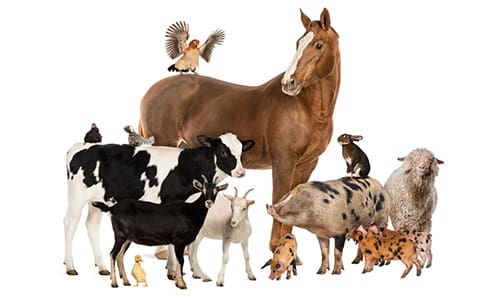
Do Create A Budget For Keeping Your Livestock
Keeping animals does come at a cost. From feed to transportation and veterinary care, you can expect to be spending money on your animals.
Before buying animals, set a budget destined to rearing livestock and purchase your animals according to that budget. When creating a budget, take into consideration veterinary visits and vaccinations, feed, building shelter and upkeeping the shelter, the cost for slaughter, the cost for removal in case of death, etc.

Don’t Think You Can Go Without A Veterinarian
There will be moments when your animals will need to be seen by a veterinarian.
When livingin rural farming communities, you will find veterinarians who specialize in livestock and will make visits to your land to care for your animals when needed. In addition to extraordinary visits, your animals will need to be seen by veterinarians for their yearly check-ups (some animals, such as donkeys, require more frequent check-ups).
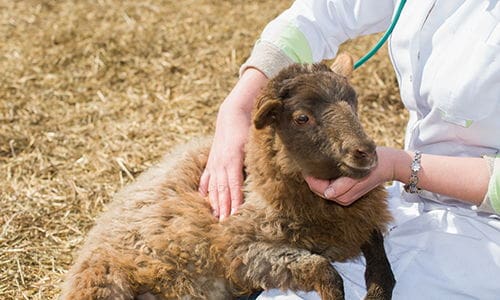
Just as for us humans, it’s beneficial to find a doctor for your livestock that will become your go-to for all visits. The animals will find comfort in being cared for by a familiar face, and your vet will be well acquainted with your livestock, allowing for more efficient care.
But most importantly, remember that animals do get sick, and they can make other animals sick as well. The health of your livestock is an utmost priority and you should seek a professional to help keep them in the best health possible.
Although it does happen to all of us homesteaders from time to time, the death of one of your livestock is utterly disappointing, try to avoid this from happening by having proper veterinary care from the start.
You may also like:
 6 Small Animals You Can Raise On Your Property
6 Small Animals You Can Raise On Your Property
This Homemade Device Can Power Up Your Entire House 7 Days in a Row (Video)
Why You Should Raise Ducks Instead Of Chickens
Livestock Animals You Should Start Raising For The Upcoming Economic Crisis
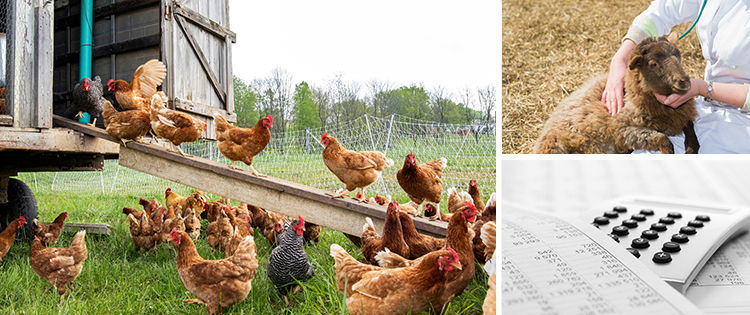








This information isn’t necessarily correct. In Missouri, you can figure on running 4 head of cattle per acre, not a 1:1 ration.
Lot of information and main points are shared which is helpful to think about so many aspects before getting livestock.